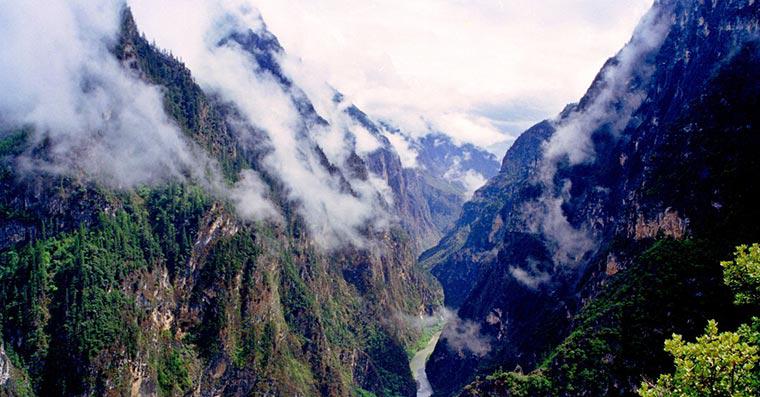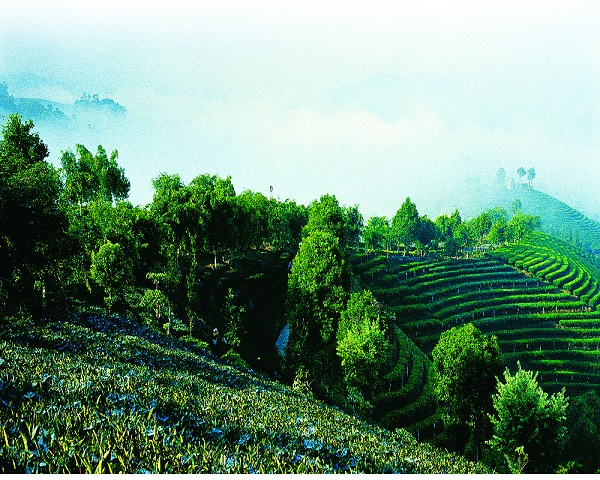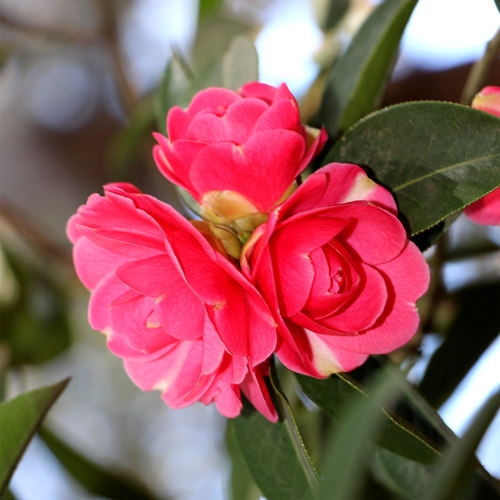
Cultural Landscape of Honghe Hani Rice Terraces (2)
Honghe Hani and Yi Autonomous Prefecture is an autonomous prefecture in Southeast-Central Yunnan Province, China, bordering Vietnam to the south. Its name is derived from the Hong (Red) River and the two major ethnic minority groups who live there: the Yi and the Hani.
In 2008, the State Administration of Cultural Heritage of the People's Republic of China nominated the Honghe Hani Terraced Fields of Yuanyang County for World Heritage Site status. It was added to the list on 22 June 2013, bringing the total number of World Heritage Sites in China to 45.
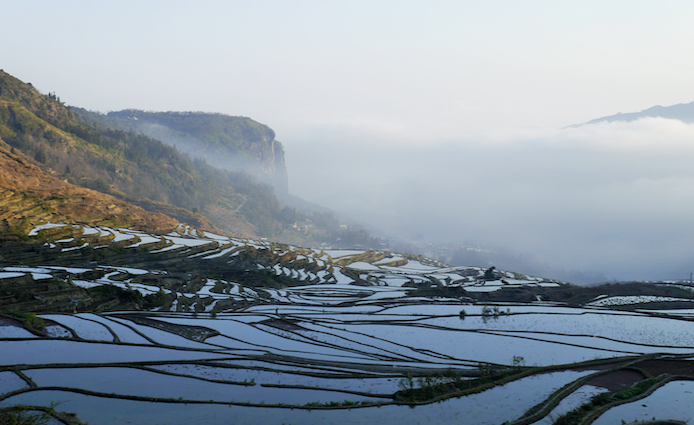
Red rice, the main crop of the terraces is farmed on the basis of a complex, integrated farming and breeding system within which ducks fertilize the young rice plants, while chickens and pigs contribute fertilizer to more mature plants, water buffalo slough the fields for the next year’s planting and snails growing in the water of the terraces consume various pests. The rice-growing process is sustained by elaborate socio-economic systems that strengthen peoples’ relationship with the environment, through obligations to both their own lands and the wider community and affirm the sacredness of nature.
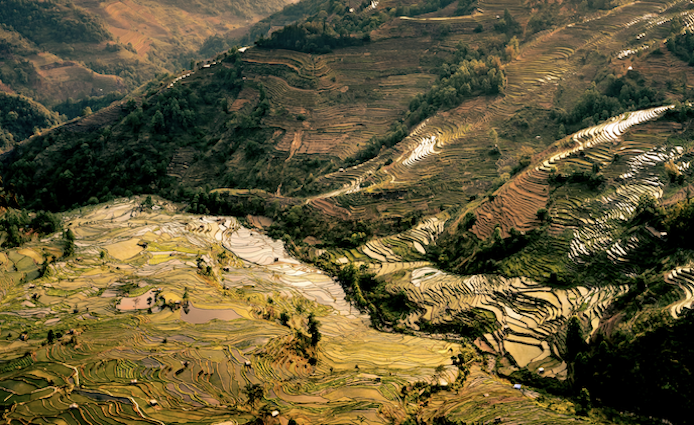
The overall boundary encompasses a large area within which the overall terraced system can be appreciated and all its attributes, forests, water system, villages, and terraces are present to a sufficient degree. None of the key physical attributes are under threat and the traditional farming system is currently robust and well protected. The buffer zone protects the water sheds and the visual setting and contains enough space to allow for coordinated social and economic development.
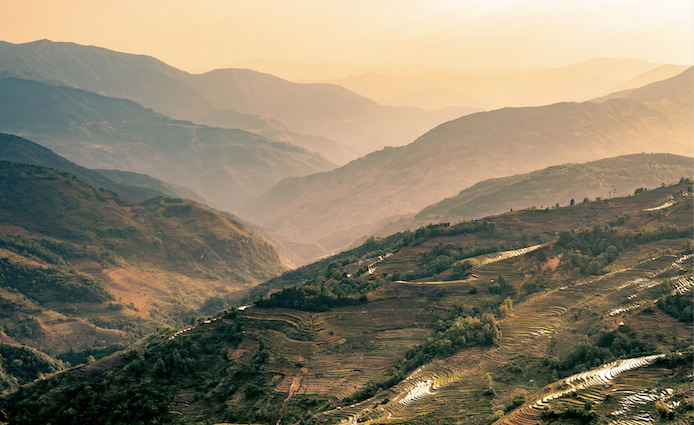
There is an overall vulnerability of the integrated farming and forestry system in relation to how far they are capable of providing an adequate living for farmers that will allow them to remain on the land. The overall farming system is also vulnerable to fluctuations in the price of red rice, but there are strategies in place to increase the price of organic agricultural products. Currently, there are no adverse impacts from tourism as this is only just beginning and some of the villages are currently off the tourist trails. But tourist numbers are increasing rapidly.
Reference: UNESCO World Heritage Convention
Photo Resource: Unsplash
If there's any copyright issue involved, please contact us to delete.
